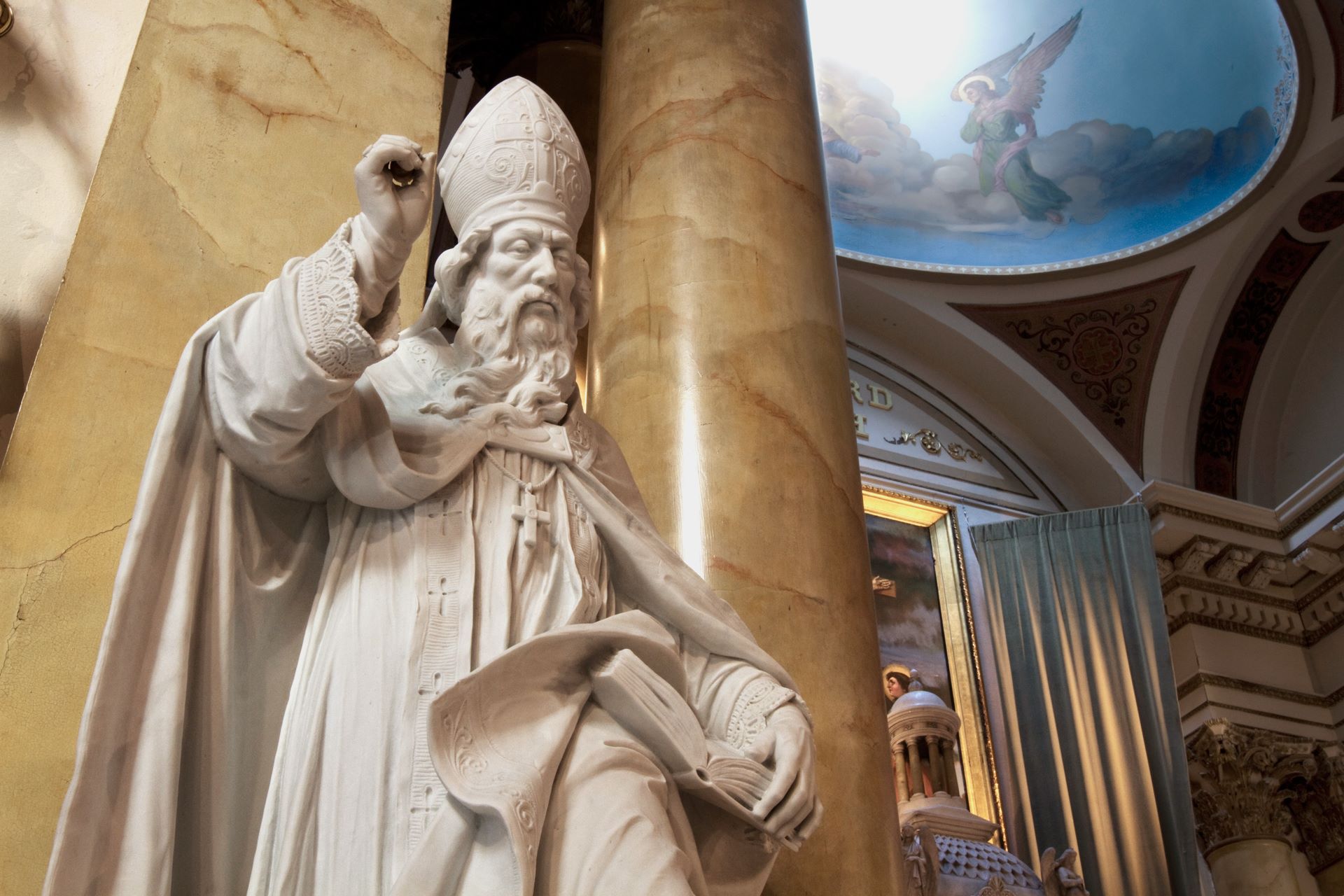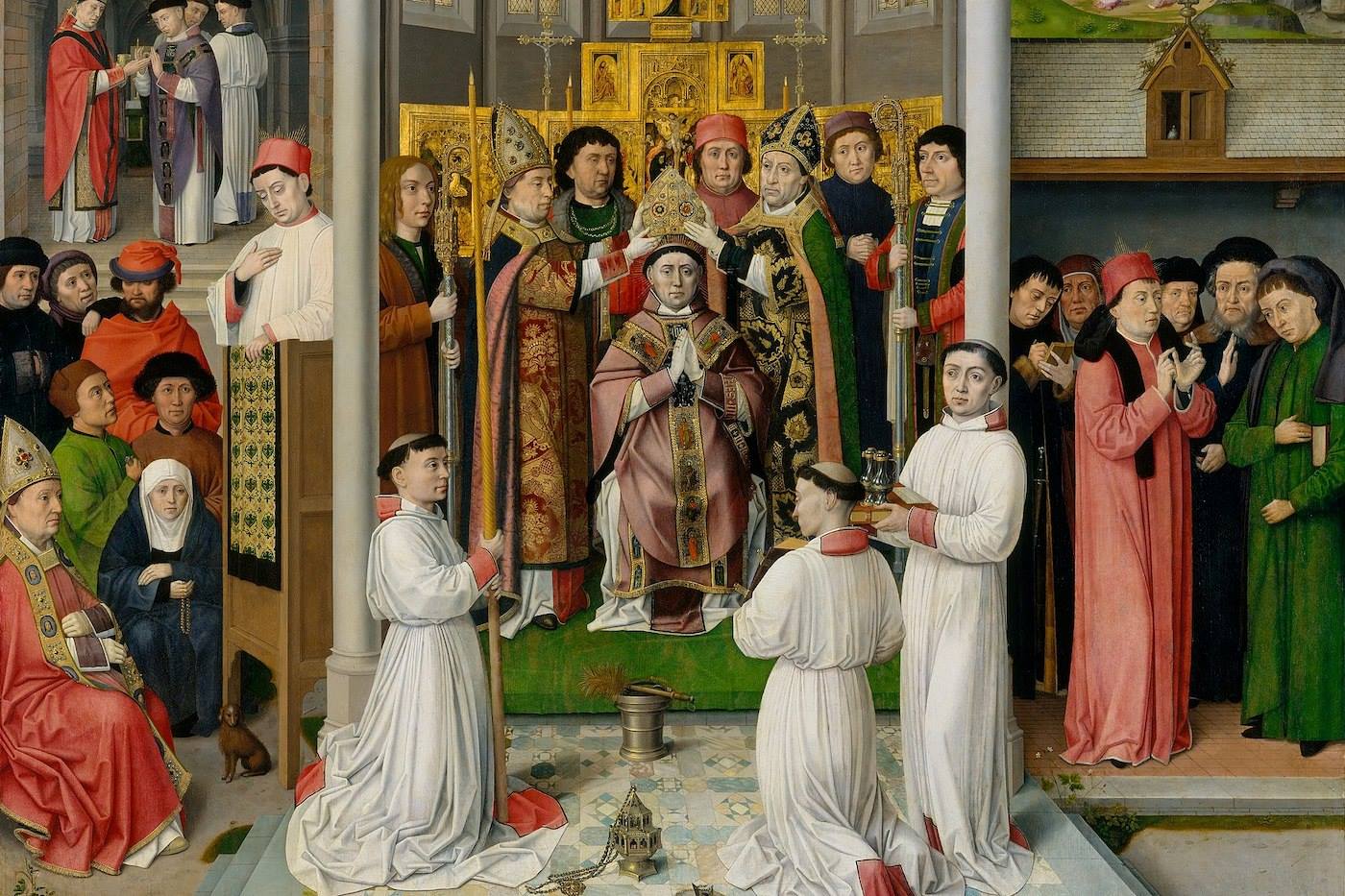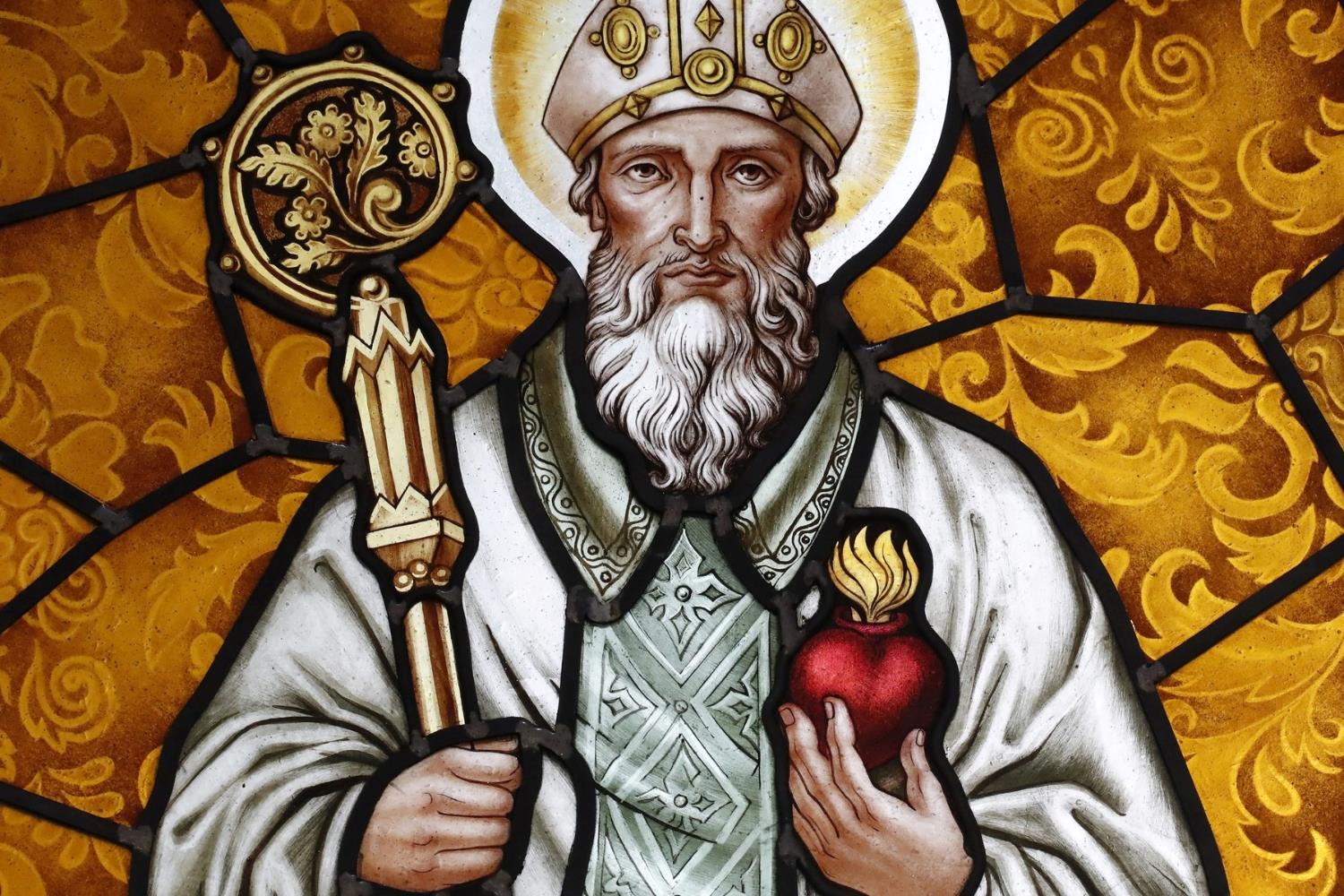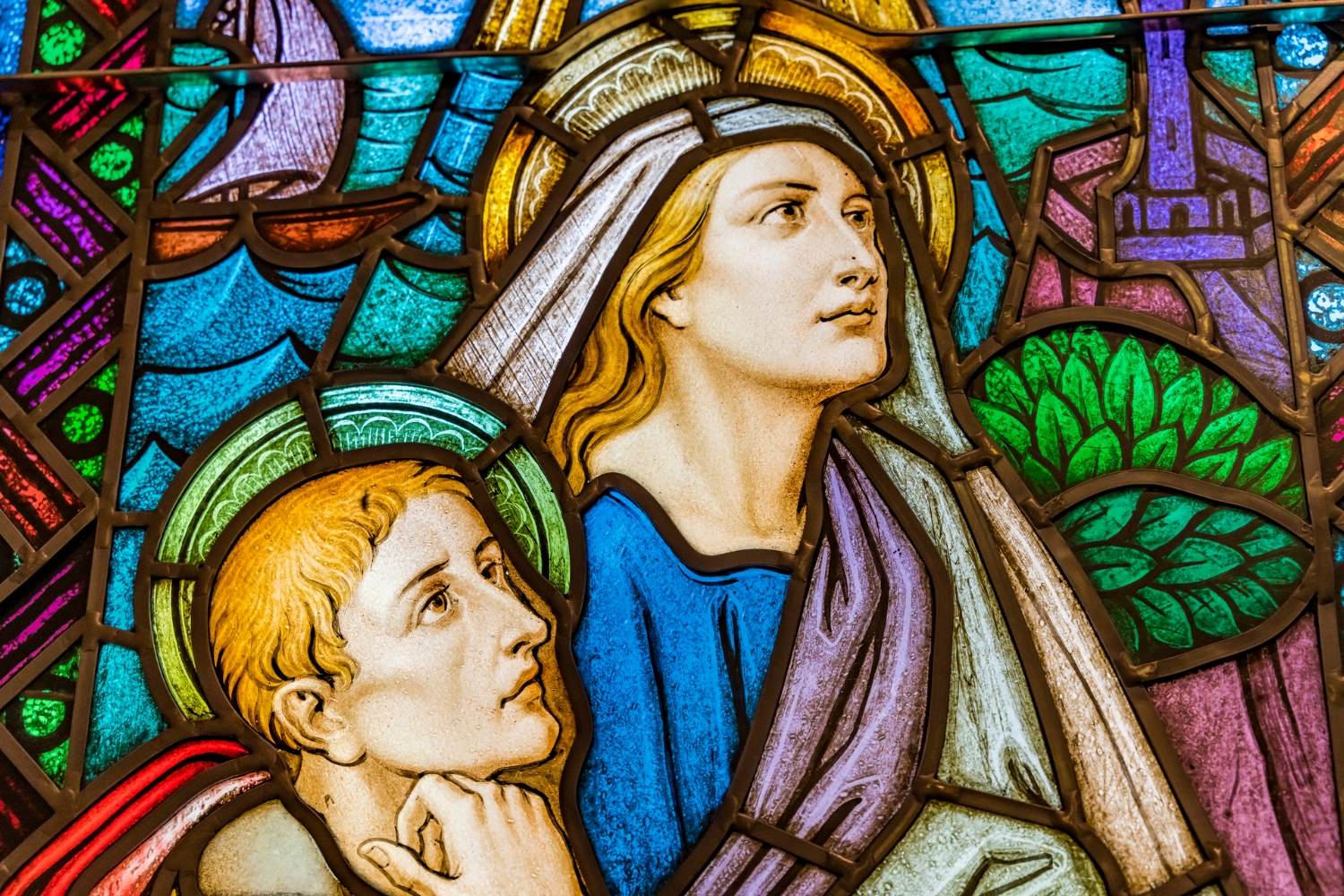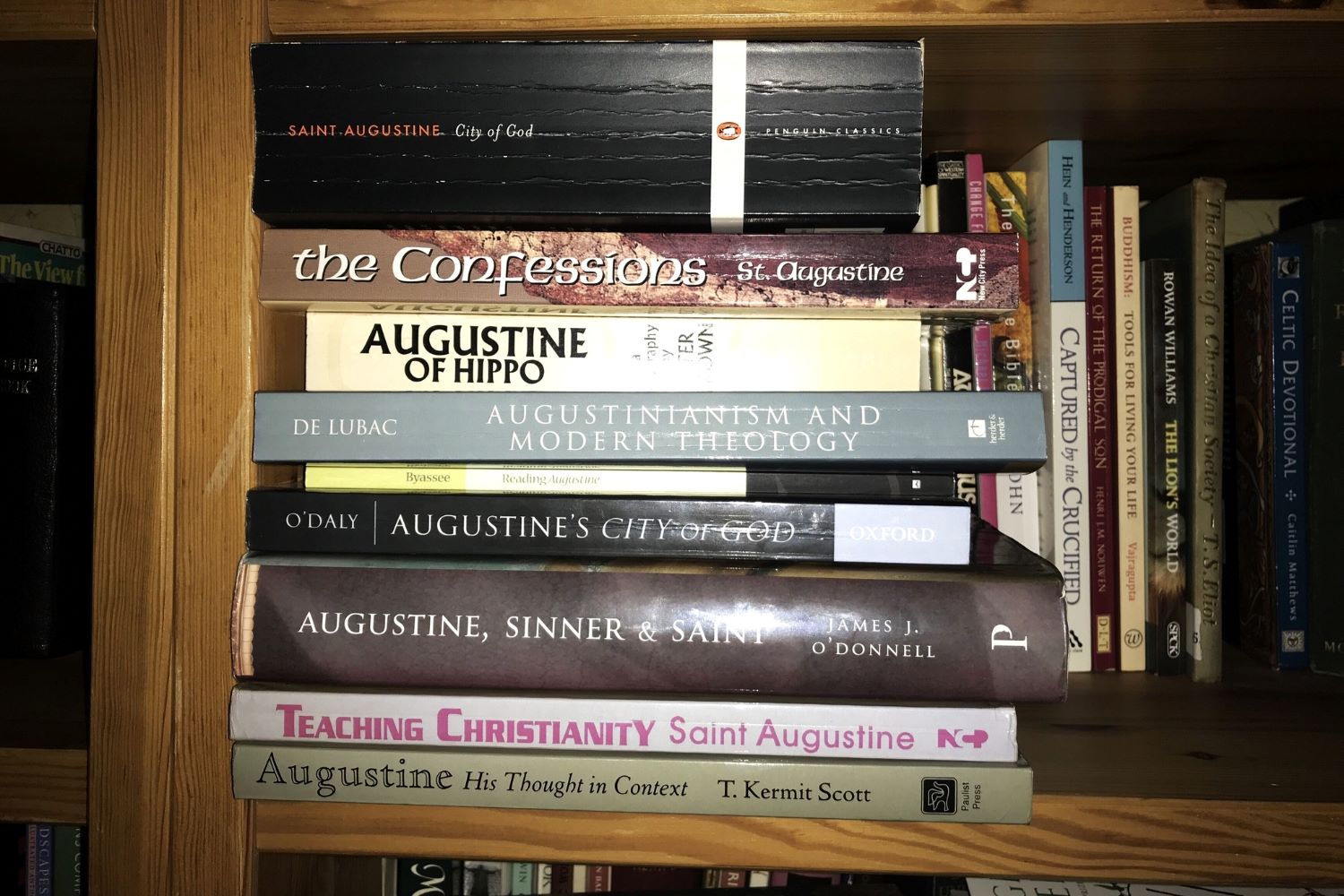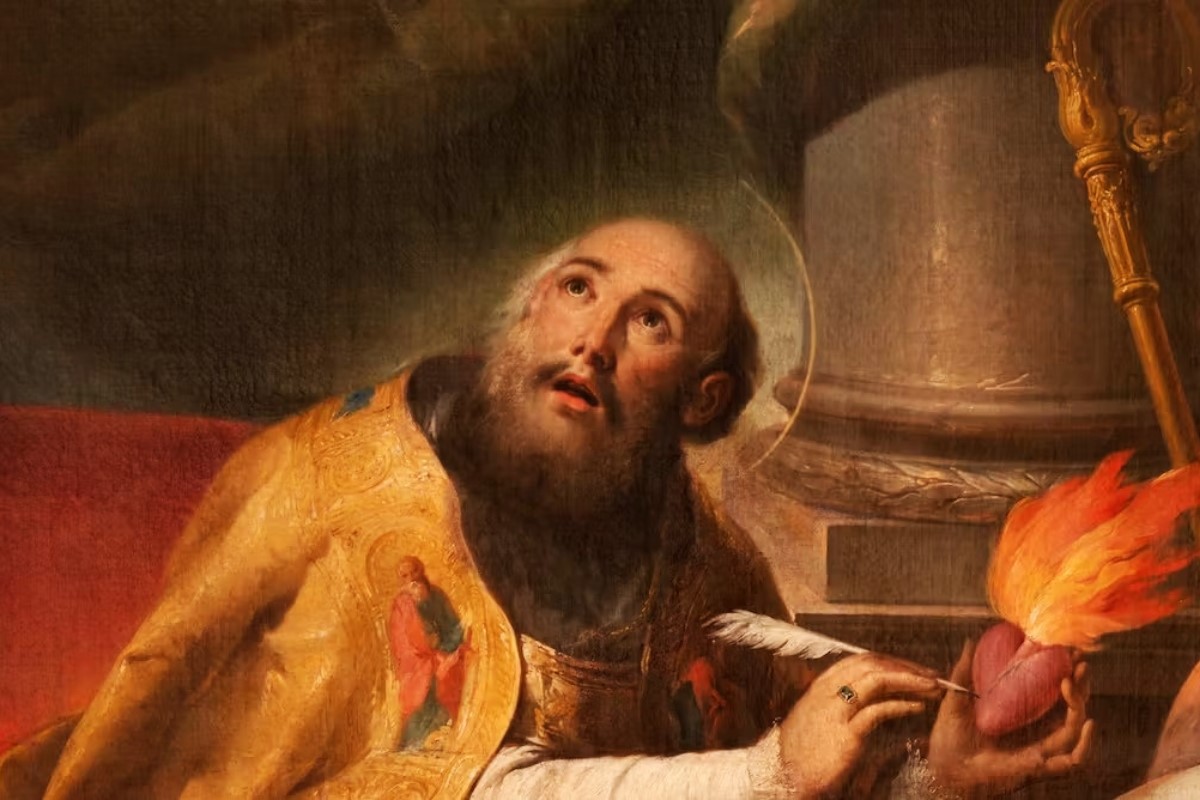Home>Theology and Spirituality>According To Saint Augustine, What Did God Transmit Through The Sacraments


Theology and Spirituality
According To Saint Augustine, What Did God Transmit Through The Sacraments
Published: February 10, 2024
Peter Smith, Editorial Director at Christian.net, combines deep insights into faith, politics, and culture to lead content creation that resonates widely. Awarded for his contributions to religious discourse, he previously headed a major organization for religious communicators, enhancing dialogue on faith's societal impacts.
Discover the profound insights of Saint Augustine on the transmission of God's grace through the sacraments in this enlightening exploration of theology and spirituality.
(Many of the links in this article redirect to a specific reviewed product. Your purchase of these products through affiliate links helps to generate commission for Christian.net, at no extra cost. Learn more)
Table of Contents
Introduction
Saint Augustine, a prominent theologian and philosopher of the early Christian church, made significant contributions to the understanding of sacraments. His profound insights continue to influence Christian theology and spirituality to this day. Augustine's views on the sacraments, particularly the transmission of God's grace through these sacred rituals, offer profound wisdom and guidance for believers seeking a deeper understanding of their faith.
In this article, we will delve into Saint Augustine's perspectives on the sacraments, exploring the profound significance he attributed to these sacred rites. We will examine how Augustine conceptualized the transmission of God's grace through the sacraments and the efficacy of these rituals in nurturing the spiritual life of believers. By gaining a deeper understanding of Augustine's teachings, we can enrich our appreciation of the sacraments and their role in fostering spiritual growth and communion with the divine.
As we embark on this exploration of Saint Augustine's insights, we will uncover the timeless relevance of his teachings and their enduring impact on Christian theology. Through his writings and reflections, Augustine invites us to contemplate the profound mysteries of the sacraments and their transformative power in the lives of believers. Let us journey into the heart of Augustine's theological vision, where the sacraments serve as conduits of divine grace, nurturing the souls of the faithful and drawing them closer to the ineffable presence of God.
Saint Augustine's Views on the Sacraments
Saint Augustine, a revered figure in Christian theology, offered profound insights into the nature and significance of the sacraments. Central to Augustine's teachings was the concept of sacraments as visible signs of invisible grace, serving as conduits through which God's divine presence and transformative power are made manifest in the lives of believers. Augustine emphasized the sacraments as sacred rituals ordained by God to impart spiritual nourishment and facilitate a deeper communion with the divine.
In Augustine's theological framework, the sacraments were imbued with profound symbolism, representing the profound mysteries of the Christian faith. He viewed these sacred rites as channels through which God's grace flows into the hearts and souls of the faithful, effecting a profound spiritual transformation. Augustine's perspective underscored the sacraments as tangible expressions of God's love and mercy, serving as tangible encounters with the divine presence.
Furthermore, Augustine articulated the sacraments as instruments of unity within the Christian community, binding believers together in their shared participation in these sacred rituals. He emphasized the communal dimension of the sacraments, highlighting their role in fostering a sense of spiritual kinship and solidarity among the faithful. According to Augustine, the sacraments not only nourish individual souls but also strengthen the bonds of fellowship and mutual support within the body of believers.
Moreover, Augustine's views on the sacraments underscored their role in sanctifying the material world, infusing the physical elements of the sacraments with spiritual significance. He emphasized the sacraments as tangible manifestations of God's redemptive presence in the material realm, sanctifying the created world and imbuing it with divine grace. Augustine's holistic understanding of the sacraments encompassed their capacity to elevate and sanctify the material aspects of human existence, affirming the inseparable union of the physical and spiritual dimensions of life.
In summary, Saint Augustine's views on the sacraments reflect a profound appreciation for their transformative power, symbolic richness, and communal significance within the Christian faith. His theological insights continue to inspire believers to engage with the sacraments as profound encounters with the divine, nurturing their spiritual growth and fostering a deeper sense of unity within the body of Christ.
The Transmission of God's Grace Through the Sacraments
Saint Augustine's profound theological reflections centered on the sacraments as conduits through which God's grace is transmitted to the faithful. According to Augustine, the sacraments serve as visible signs of God's invisible grace, effectively communicating divine love, mercy, and transformative power to those who partake in these sacred rituals.
Central to Augustine's understanding of the sacraments was the concept of efficacious grace, wherein God's grace is not merely symbolized but actively imparted to the recipients through the sacramental actions. Augustine emphasized that the sacraments are not empty symbols but tangible means through which God bestows His grace upon believers, effecting a real and profound spiritual change within their souls.
Augustine's theological perspective on the transmission of God's grace through the sacraments underscores the transformative agency of these sacred rites. He viewed the sacraments as instrumental in effecting spiritual rebirth, renewal, and sanctification, enabling believers to experience the redemptive power of God in their lives. Through the sacraments, Augustine envisioned a profound encounter with the living presence of God, where divine grace permeates the hearts and minds of the faithful, nurturing their spiritual growth and deepening their communion with the divine.
Furthermore, Augustine's teachings highlighted the sacraments as tangible expressions of God's love and compassion, serving as visible manifestations of His abiding presence in the lives of believers. By participating in the sacraments, individuals are invited to enter into a sacred encounter with the divine, where God's grace is communicated through the material elements of the rituals, transcending the physical realm to touch the depths of the human spirit.
In essence, Saint Augustine's profound insights into the transmission of God's grace through the sacraments invite believers to perceive these sacred rituals as transformative encounters with the living God. Through the sacraments, God's grace is not only symbolically represented but actively communicated, infusing the hearts and souls of the faithful with divine love, healing, and spiritual nourishment. Augustine's theological vision illuminates the sacraments as channels of God's abiding grace, inviting believers into a profound communion with the ineffable mystery of divine love and redemption.
The Efficacy of the Sacraments According to Saint Augustine
Saint Augustine's profound theological insights into the efficacy of the sacraments offer a compelling vision of these sacred rituals as transformative encounters with the divine. Central to Augustine's perspective is the concept of sacramental efficacy, wherein the sacraments are not merely symbolic gestures but tangible means through which God's grace actively operates in the lives of believers.
Augustine emphasized the profound efficacy of the sacraments in effecting spiritual renewal, healing, and sanctification within the souls of the faithful. He viewed the sacraments as instrumental in conveying God's redemptive power, enabling individuals to experience a profound transformation of heart and spirit through their participation in these sacred rites. According to Augustine, the efficacy of the sacraments lies in their capacity to effect real and tangible changes within the innermost being of the recipients, nurturing their spiritual growth and fostering a deeper communion with the divine.
Furthermore, Augustine's teachings underscored the sacraments as visible manifestations of God's abiding presence and active grace in the lives of believers. He envisioned the sacraments as sacred encounters where God's transformative power is made manifest, infusing the material elements of the rituals with divine efficacy. Through the sacraments, Augustine articulated a profound understanding of God's ongoing work of grace, wherein believers are invited to partake in the redemptive and healing energies of the divine, leading to a profound renewal of their innermost being.
Moreover, Augustine's emphasis on the efficacy of the sacraments extended to their role in fostering spiritual unity and communal solidarity within the body of believers. He viewed the sacraments as instruments of unity, binding the faithful together in their shared participation in these sacred rituals. Augustine's vision encompassed the sacraments as transformative agents that not only nourish individual souls but also strengthen the bonds of fellowship and mutual support within the Christian community, fostering a deeper sense of spiritual kinship and solidarity among the faithful.
In summary, Saint Augustine's profound insights into the efficacy of the sacraments invite believers to engage with these sacred rituals as transformative encounters with the living God. Through the sacraments, God's grace actively operates, effecting spiritual renewal, healing, and communion with the divine, while also fostering a deeper sense of unity and fellowship within the body of Christ. Augustine's theological vision illuminates the sacraments as channels of God's abiding grace, inviting believers into a profound communion with the ineffable mystery of divine love and redemption.
Conclusion
In conclusion, Saint Augustine's profound insights into the sacraments offer a rich tapestry of theological wisdom, inviting believers to engage with these sacred rituals as transformative encounters with the living God. Augustine's emphasis on the sacraments as visible signs of invisible grace underscores their profound significance as conduits through which God's redemptive and transformative power is made manifest in the lives of believers. By participating in the sacraments, individuals are invited into a sacred encounter with the divine, where God's grace actively operates, effecting spiritual renewal, healing, and communion with the ineffable mystery of divine love and redemption.
Furthermore, Augustine's holistic understanding of the sacraments as instruments of unity within the Christian community highlights their role in fostering a deeper sense of spiritual kinship and solidarity among the faithful. The sacraments not only nourish individual souls but also strengthen the bonds of fellowship and mutual support within the body of believers, fostering a deeper sense of communal solidarity and shared participation in the redemptive work of God.
Moreover, Augustine's teachings illuminate the sacraments as tangible expressions of God's abiding presence and active grace in the lives of believers. Through the sacraments, God's transformative power is made manifest, infusing the material elements of the rituals with divine efficacy. Augustine's theological vision invites believers to perceive the sacraments as transformative encounters with the living God, where divine grace permeates the hearts and souls of the faithful, nurturing their spiritual growth and fostering a deeper communion with the ineffable mystery of divine love and redemption.
In essence, Saint Augustine's profound insights into the sacraments continue to inspire and guide believers in their spiritual journey, inviting them to embrace these sacred rituals as profound encounters with the living God. Through the sacraments, God's grace actively operates, effecting spiritual renewal, healing, and communion with the divine, while also fostering a deeper sense of unity and fellowship within the body of Christ. Augustine's theological vision illuminates the sacraments as channels of God's abiding grace, inviting believers into a profound communion with the ineffable mystery of divine love and redemption.
